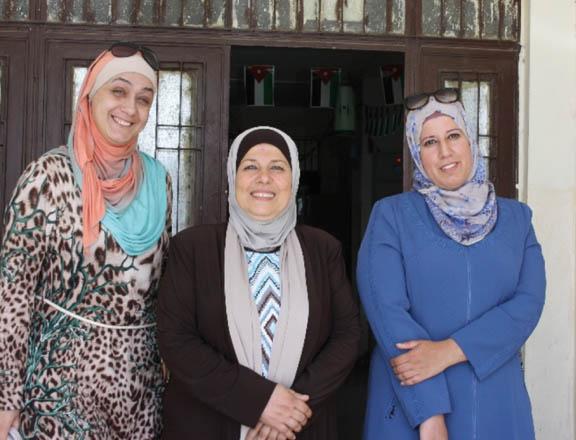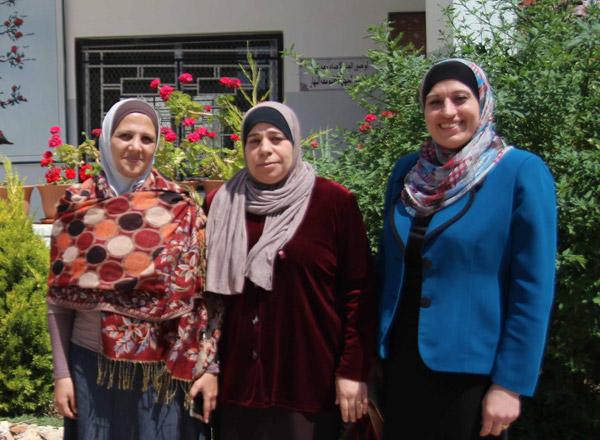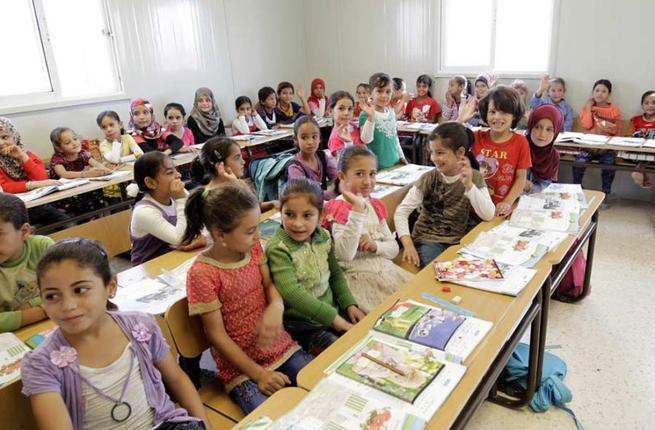You are here
UNESCO initiative seeks to ensure evidence-based policy, planning in education system
Jun 15,2017 - Last updated at Jun 15,2017

Shayma Zaidan, Maysoun Al Omari and Alaa Al Zioud from Iskan Al Hasemeyyeh Primary School, Zarqa, pose for a photo (Photo courtesy of UNESCO)
AMMAN (UNESCO) — Final exams are currently under way across the Kingdom. While some may think that this time permits teachers to relax, in reality they are busy at grading in order to ensure that marks are accurately recorded in the “Open Education Management Information System” (EMIS).
OpenEMIS is a UNESCO initiative that emerged from the need for an evidence-based policy and planning in the education system. With the support of the European Union and at the request of the Jordan government, UNESCO set out nearly three years ago to provide technical expertise towards the restructuring of the country’s EMIS.
There are nearly 1.9 million students registered in basic and secondary education, 120,000 teachers and a substantial influx of refugees seeking continuing education opportunities in Jordan. Given such numbers, ensuring the ready availability of accurate educational data is more important than ever.
Maysoun Al Omari is the principal of the second-shift at Iskan Al Hasemeyyeh Primary School in Zarqa, 22km northeast of Amman. The school is divided into two shifts — one that begins early in the morning, and the second that starts around lunchtime — due to overcrowding that resulted from a sharp increase in Syrian refugee students in Zarqa and other areas. The afternoon shift that Maysoun oversees at her school caters entirely to refugee students; 239 Syrians and seven Iraqis.
The OpenEMIS system has made it possible to retrieve aggregate school level data on students, teachers, grades, subjects and teaching periods for all MOE-operated schools and institutions throughout Jordan. This represents a huge achievement.
“Anything that is new is hard, but we learn to adapt over time”, says Maysoun. Iskan Al Hasemeyyeh Primary School transitioned late to a double-shift school in 2013.
Maysoun reveals that the multiple layers of information easily sourced through OpenEMIS have made this adjustment easier. Now, when organisations approach the school wanting to help Syrian refugees, pulling up data on the students most in need is easy.
For Jordanian families, information sourced from OpenEMIS works as the key reference point and a trusted source of information for the disbursement of the Ministry of Finance’s support payments.
Alaa Al Zioud and Shayma Zaidan are passionate Field Directorate EMIS Officers. Both are former teachers. They left their teaching jobs to focus entirely on OpenEMIS, and have a lot to share about the system.
“For the first time ever, we have jobs that we like!” says Alaa. She has worked hard to perfect her EMIS knowledge and is an administrator of the Facebook page that operates as a forum for OpenEMIS information sharing and troubleshooting throughout Jordan. While this takes extra effort, “I find it rewarding to develop the capacity of other people working to advance their OpenEMIS knowledge”, says Alaa.
Related Articles
AMMAN (UNESCO) — There is a lot to celebrate in Irbid these days.
AMMAN — A new project aimed at supporting evidence-based decision-making and planning in the field of school maintenance on Wednesday kicked
AMMAN — The Ministry of Education successfully concluded a two-day policy dialogue with partners and national stakeholders to assess progres

















